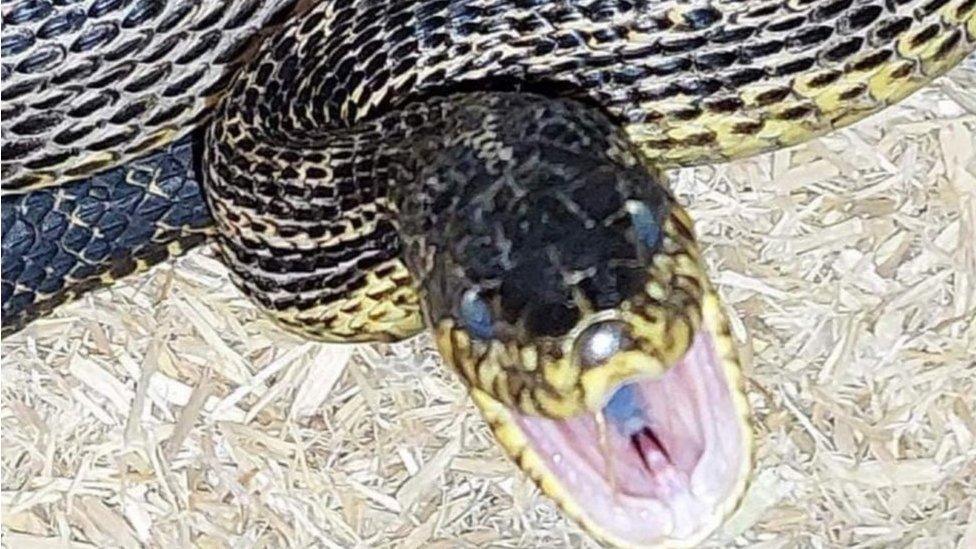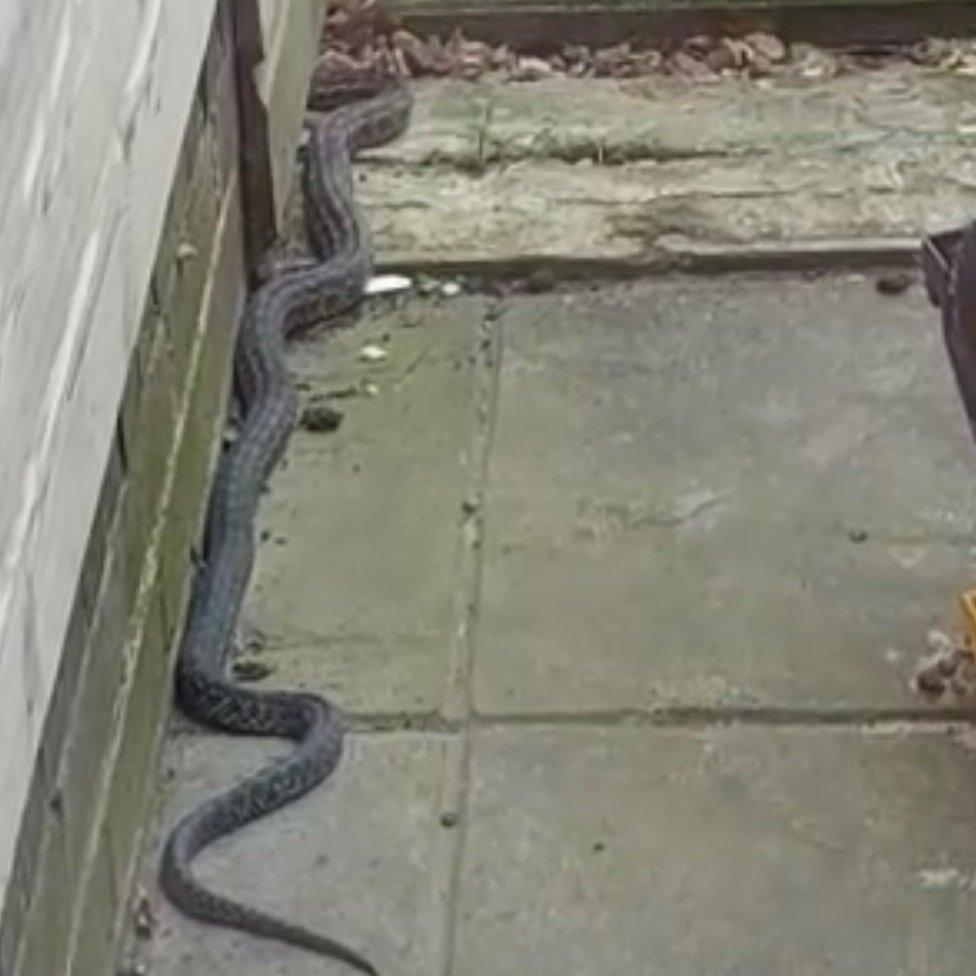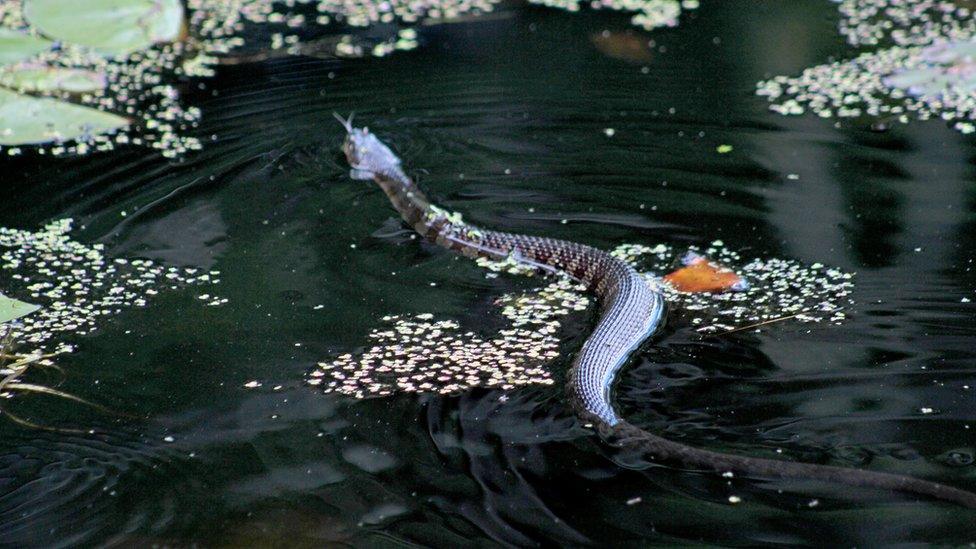Snake found in Dorset garden as man puts out rubbish
- Published
'Oh my god we've got a huge snake in our garden'
A woman who returned home to find a snake in her back garden has said the incident left her "traumatised".
Helen Martin, from Sherborne, Dorset, received a call from her husband, Lee, on Monday after he heard hissing while putting out the rubbish.
She said she thought he "probably meant a slow worm" but soon realised he was not exaggerating.
A local reptile enthusiast removed the snake which had taken refuge in the couple's shed.
Mrs Martin, who detests snakes, said: "I can't even walk past them in the zoo."
She said she turned to social media for help after receiving the "hysterical" call from her husband.

The snake had become "aggressive", Helen Martin said

The snake in Mr and Mrs Martin's back garden before it was captured by a local enthusiast
Mrs Martin, 35, described it as "a big snake" that was "a good four or five feet long".
"I couldn't get through to the RSPCA and the vets couldn't do anything, and by this time it had gone in the shed," she added.
Eventually, a local reptile enthusiast got in touch and volunteered to remove the snake, which Mrs Martin was told had become "aggressive".
Mrs Martin said the enthusiast thought the reptile was a bullsnake, which is native to North America and can grow up to 8ft (2.4m) long.
'Dehydrated'
However, the Amphibian and Reptile Conservation (ARC) group, based in Bournemouth, Dorset, said it was likely to be a Northern water snake - a non-venomous grass snake from North America.

The snake is thought to have been a Northern water snake, like this one photographed in its natural habitat
Anju Sarpul, from the group, said: "It's probably best to keep it in a cool, shaded plastic box with wet towels. They like water and as it's shedding it's probably dehydrated. That's why it's annoyed."
Typically they grow to about 4ft (1.2m) long.
Ms Sarpul said the RSPCA should be called to remove it.
"It's not a good idea to release it as they eat our amphibians and fish," she added.
Mrs Martin said she had been left "traumatised" and had not been able to go into her garden since the find.
She added she was grateful neither her five-year-old son nor her small Maltese dog were playing there at the time.
The RSPCA has been contacted for comment.

Follow BBC South on Facebook, external, Twitter, external, or Instagram, external. Send your story ideas to south.newsonline@bbc.co.uk, external.